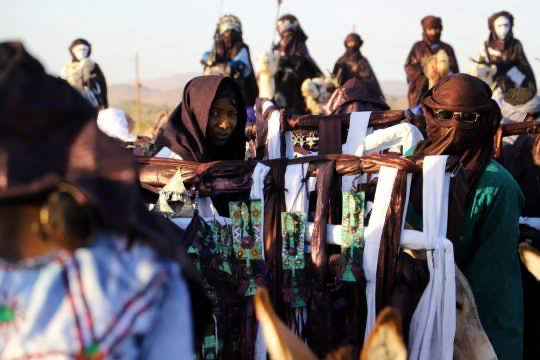Sokoto State Tribes: A Comprehensive Guide To Ethnic Groups And Cultures
Sokoto State, located in northwestern Nigeria, is known as the Seat of the Caliphate due to its historical and religious significance. It is home to the Sokoto Caliphate, a powerful Islamic empire founded by Usman dan Fodio in the early 19th century. The state is predominantly inhabited by Hausa and Fulani people, with several smaller ethnic groups contributing to its rich cultural heritage.
This guide explores the major ethnic groups, their languages, cultural traditions, and way of life in Sokoto State.
Major Ethnic Groups in Sokoto State
1. Hausa
- Language Spoken: Hausa
- Where Found: Throughout Sokoto State
- Cultural Identity:
The Hausa people are the largest ethnic group in Sokoto State and play a major role in the region’s politics, economy, and culture. They are known for their farming, trading, and craftsmanship. Islam is deeply integrated into their culture, influencing their dress, festivals, and daily life.
The Durbar Festival, celebrated during Eid, is a major cultural event featuring royal horse parades and traditional displays.
2. Fulani (Fulbe)
- Language Spoken: Fulfulde
- Where Found: Rural areas, particularly in local government areas like Goronyo, Gada, and Illela
- Cultural Identity:
The Fulani people are known for their nomadic lifestyle and cattle herding. They have a strong presence in Sokoto, particularly among the ruling elite. The Sultan of Sokoto, the spiritual leader of Nigerian Muslims, is of Fulani descent.
Fulani culture is characterized by traditional tattoos, intricate hairstyles, and cattle-related ceremonies, such as the Sharo Festival, where young men undergo public flogging as a test of bravery.
3. Zabarmawa (Zarma)
- Language Spoken: Zarma
- Where Found: Border regions near Niger Republic, especially Illela and Tangaza LGAs
- Cultural Identity:
The Zabarmawa people share cultural and linguistic ties with the Zarma people of Niger Republic. They are known for their trade, fishing, and Islamic scholarship.
4. Tuareg
- Language Spoken: Tamasheq
- Where Found: Remote desert areas near the Niger Republic border
- Cultural Identity:
The Tuareg people are a nomadic Berber group known for their blue indigo-dyed clothing and desert lifestyle. They are skilled traders and have historically controlled trade routes across the Sahara Desert.
Other Indigenous Tribes in Sokoto State
Apart from the dominant Hausa and Fulani, Sokoto State is home to smaller ethnic groups, including:
|
Ethnic Group |
Language Spoken |
Local Government Areas (LGAs) Found |
|
Gobirawa |
Hausa (Gobir dialect) |
Sabon Birni, Isa |
|
Dakarkari (Lela) |
C’lela |
Binji, Gada |
|
Kambari |
Kambari |
Rabah |
|
Arawa |
Hausa (Arawa dialect) |
Wurno, Gwadabawa |
|
Busawa |
Hausa (Busawa dialect) |
Dange-Shuni |
|
Kamuku |
Kamuku |
Tureta |
Cultural Heritage of Sokoto State
1. Language and Communication
Hausa is the dominant language, serving as the lingua franca among various ethnic groups. Fulfulde (spoken by the Fulani) and Arabic (due to Islamic influence) are also common.
2. Traditional Festivals
- Durbar Festival (Hausa-Fulani): A grand procession of royal horse riders, drummers, and warriors during Islamic celebrations like Eid-el-Fitr and Eid-el-Kabir.
- Sharo Festival (Fulani): A test of endurance where young Fulani men prove their bravery through public flogging.
- Gani Festival (Gobirawa): A celebration of the historical Gobir Kingdom, featuring cultural dances and storytelling.
3. Religion and Traditional Leadership
Sokoto is the center of Islamic learning and leadership in Nigeria. The Sultan of Sokoto is the highest Islamic authority in Nigeria, overseeing Islamic affairs and Sharia law.
4. Economy and Occupations
The people of Sokoto engage in:
- Agriculture: Growing millet, sorghum, onions, and tomatoes.
- Cattle Rearing: The Fulani are famous for their livestock trade.
- Leatherwork: Sokoto is known for its high-quality leather, including the famous Sokoto Red Goat Skins.
Frequently Asked Questions (FAQs)
1. What is the dominant language in Sokoto State?
Hausa is the most widely spoken language, followed by Fulfulde (spoken by the Fulani). Arabic is also used for religious purposes.
2. What is the main religion in Sokoto State?
Islam is the dominant religion, with over 90% of the population being Muslim. The state is a major center for Islamic scholarship and governance.
3. Who is the most important traditional ruler in Sokoto State?
The Sultan of Sokoto is the most powerful traditional and religious leader, serving as the spiritual head of Nigerian Muslims.
4. What are the major economic activities in Sokoto State?
- Farming (millet, onions, tomatoes, and sorghum)
- Cattle rearing and leather production
- Trading (cross-border commerce with Niger Republic)
5. What is Sokoto famous for?
Sokoto is famous for:
- The Sokoto Caliphate and Islamic history
- The Sultan of Sokoto’s palace
- High-quality leather production (Sokoto Red Skins)
- Hot climate – it is one of the hottest states in Nigeria
Final Thoughts
Sokoto State is a cultural and religious powerhouse in Nigeria. From the warrior traditions of the Gobirawa to the nomadic Fulani herders, each ethnic group contributes to the rich history and traditions of the region. Whether you are interested in Islamic history, Durbar festivals, or Hausa-Fulani culture, Sokoto State offers a fascinating glimpse into Nigeria’s northern heritage.
Would you like to learn more about a specific ethnic group or cultural tradition in Sokoto State? Let us know!





